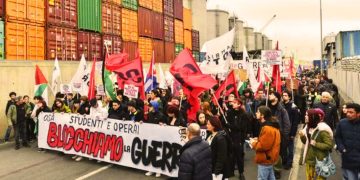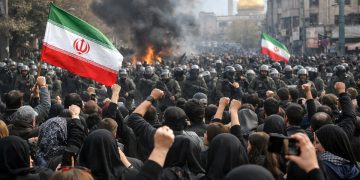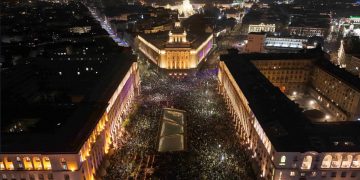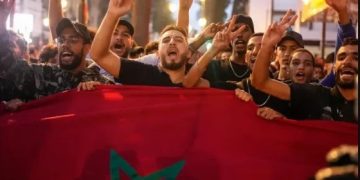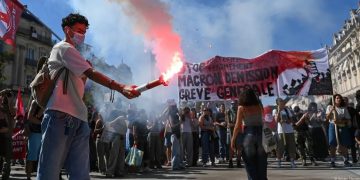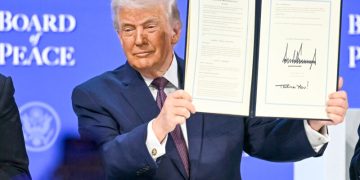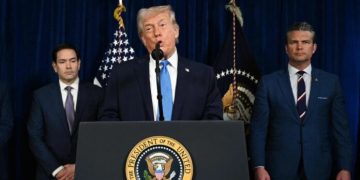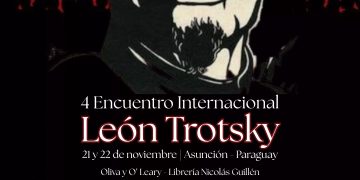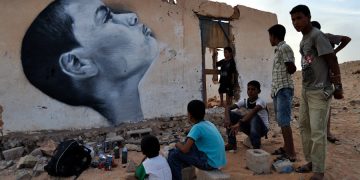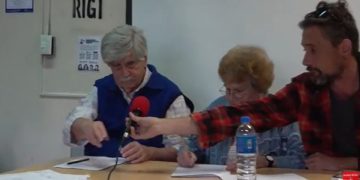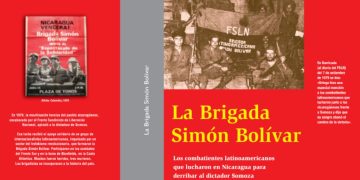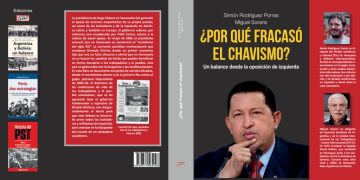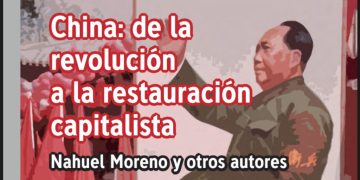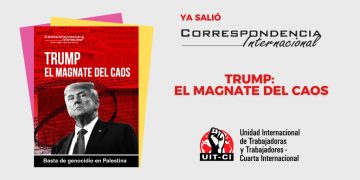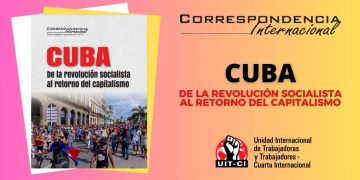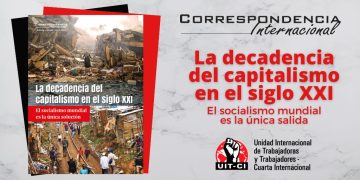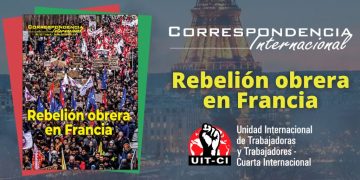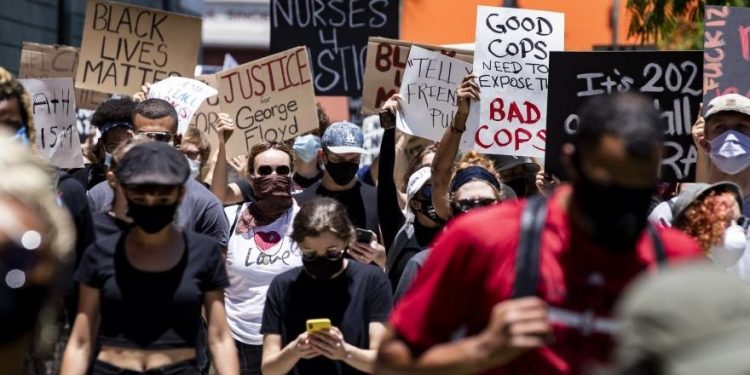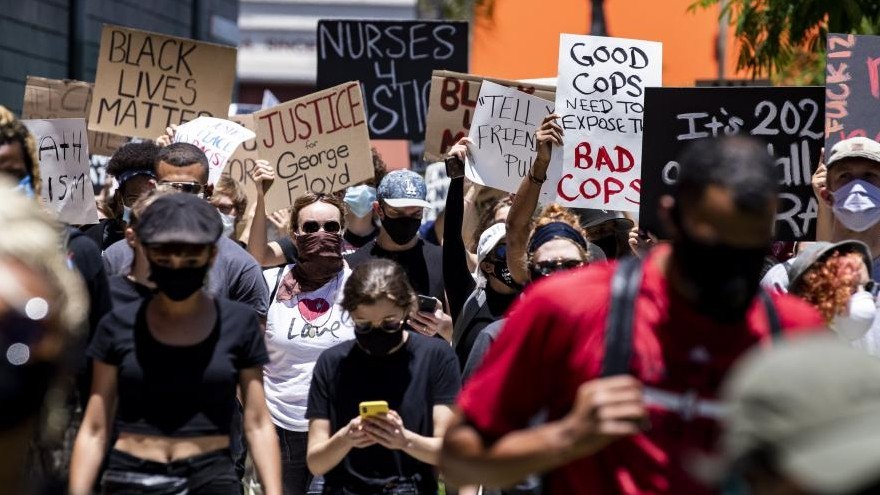 This is a shortened version of the report by Miguel Sorans, a leader of the Socialist Left and the IWU-FI, to the VII World Congress.
This is a shortened version of the report by Miguel Sorans, a leader of the Socialist Left and the IWU-FI, to the VII World Congress.
In 2020 there have been major changes, especially the coronavirus pandemic and the new acute crisis of the capitalist economy. The other important change is that mobilisations and protests against governments and political regimes are again taking place after an impasse, although they are not yet at the same level as in 2019.
We are living through the most serious economic crisis in the history of capitalism. Many say it is because of the pandemic, but the COVID-19 only threw fuel to fire. It ratified what we pointed out in the document of December 2019. We said that imperialism had not overcome the open capitalist economic crisis in 2007/08 and that a new acute crisis could occur during 2020. This happened, but by an unforeseen way, by a pandemic.
The IMF gave the data of the crisis and its sharpness, which predicted that the fall of the world GDP will be -4.4 percent. It is considered the biggest collapse in history. Before the coronavirus, there were 1.4 billion people in precarious jobs on the planet and over 172 million unemployed. Now the IMF has announced 400 million new unemployed will be added. Hunger is growing in the world. According to the UN, in a July 2020 report, 3 billion people cannot afford a healthy diet out of 8 billion people on the planet. There are 690 million hungry people in the world. At the other extreme, the richest 500 million people are richer. Jeff Bezos, for example, the owner of Amazon, added over 73 billion dollars to his personal fortune between May and September.
The prospects for 2021 indicate a deepening of this disaster and therefore it will increase the suffering of the mass movement.
But what is remarkable and favourable for us is that the working class and peoples do not passively accept the seriousness of the attack they are receiving from imperialism.
In 2020, after an impasse, the mobilisations have been resumed
In 2020, there was undoubtedly an impasse after the revolutionary wave of 2019. There was a retreat before the Covid-19, understandably in view of the fear of contagion. But since May a change has been taking place, although not at the same level as in 2019. Popular mobilisations in Lebanon have returned. There were workers’ strikes in Europe, such as that of Nissan in Barcelona against the closure, and that of Renault, against layoffs, in France. The highlight was the anti-racist rebellion in the United States in June, which reached 20 million people on the streets, surpassing even the mobilisations against the Vietnam War in the 1960s. This caused thousands to take to the streets in Europe too, at the height of the pandemic, with mass demonstrations in Paris, London, Barcelona and the rest of the continent. This weakened Trump; it was the prelude to his electoral defeat.
Subsequently, Belarus’ popular rebellion against the dictator Lukashenko emerged and is still continuing. In October there was a partial strike by the metalworkers’ unions in Italy against company closures. In Thailand, a democratic mass mobilisation against the monarchy, the “yellow duck revolution”, has been going on for months, because the youth are coming out with giant plastic ducks as symbols against the police repression. Recently, there was an unprecedented strike in India of over 250 million workers and peasants. In Chile, the people resumed the rebellion after a vote in favour of constitutional reform and a constituent assembly in a referendum. In Guatemala, surprisingly, thousands took to the streets, burned down the parliament, and the government had to back down with a budget dictated by the IMF. In Peru, thousands took to the streets with the slogan “Neither Vizcarra nor Merino, let them all go, for a constituent assembly”. For days there was no government and in six days there were three presidents. Now a strike by agricultural workers has brought about a change in a very important law.
So, the prospect is that this rise will continue in 2021, facing attacks on living standards. We have to be open to new situations as in Guatemala and Peru or new strikes like the one in India.
2020 was also a year of defeats and setbacks for far-right governments
In 2016, with Trump’s victory, Salvini in Italy and then Bolsonaro in Brazil, a discussion opened up in the whole of the world’s left, in which most, if not most, of it said that fascist regimes were coming. That what was going to predominate was the advance of the international far-right. We, in the 2017 Congress and in the various documents, cannot recognise the advance of the far-right and the dangers it posed for the mass movement. But we said the world was not going to fascist regimes and that counter-revolutionary victories were least likely to take place. Because we saw workers’ and people’s struggle and resistance that would probably counteract this tendency. And this happened. Four years later we see that they are going backwards, which is not the same as saying the far-right has disappeared.
The far-right variants could not merge. The electoral defeat of Trump shows this. Added to this is Añez’ defeat in Bolivia. In the municipal elections in Brazil, Bolsonaro’s candidates lost. In Greece, the neo-Nazi party Golden Dawn, which had been growing and had reached an important number of deputies, was declared as a criminal organisation in the middle of mobilisations demanding its punishment.
Trump’s defeat is the electoral expression of the anti-racist rebellion, the social crisis, and of the COVID-19. The victory of Biden and the democrats means a change of command in US imperialism, but it happens in the middle of what we define as a global crisis of imperialism, political, social, economic, and military. Biden is not new; the Democratic Party is back. The policy of the carrot and the stick is back; it will prevail in negotiation with the big powers and with the reformist leaderships over the stick, but without abandoning it, compared with Trump.
The struggle to build revolutionary parties
The continuity of the workers’ and popular revolts and protests provokes a permanent tendency towards crisis and the weakening of the capitalist regimes and governments.
This process is also taking place in the governments and leaders of the global centre-left. An obvious example was the failure of Syriza in Greece, and now Podemos debunking for being part of the government and the monarchic bourgeois regime of the Spanish State. The crisis of Chavism and Maduro before the masses, who expressed their rejection with their feet. 70 per cent of the people who failed to vote in the fraudulent elections in Venezuela. The PT continues to show its decadence with the meagre results it got in the recent municipal elections in Brazil.
But there is no doubt the question of leadership is still the weakest link of the working class and the exploited. The struggle to overcome the crisis of revolutionary leadership continues to be our great strategic task.
What is growing in the struggles is an immensely broad, working-class, youth, popular and women’s vanguard. Thousands are protesting on the streets in Chile, in Lebanon, health workers and labourers all over the world, or the radicalised youth and the anti-racist movement in the USA. There are new political and organisational phenomena. In Chile, for example, new organisations have emerged at the peak of the mobilisation, such as the neighbourhood assemblies.
Anti-bureaucratic oppositions are formed in the trade unions in the different countries or combative and independent unions. There is the raw material, in that fighting vanguard, to fight for new fighting leaders and to build revolutionary parties that promote the mobilisation for governments of the workers and socialism. This is the central orientation of the IWU-FI.
This was put forward since the foundation of the Fourth International, in the Transitional Programme, and it is still the raison d’être of the revolutionary socialists. The IWU-FI assumes this by considering itself as a part, not the only organisation that can rebuild the Fourth International.








